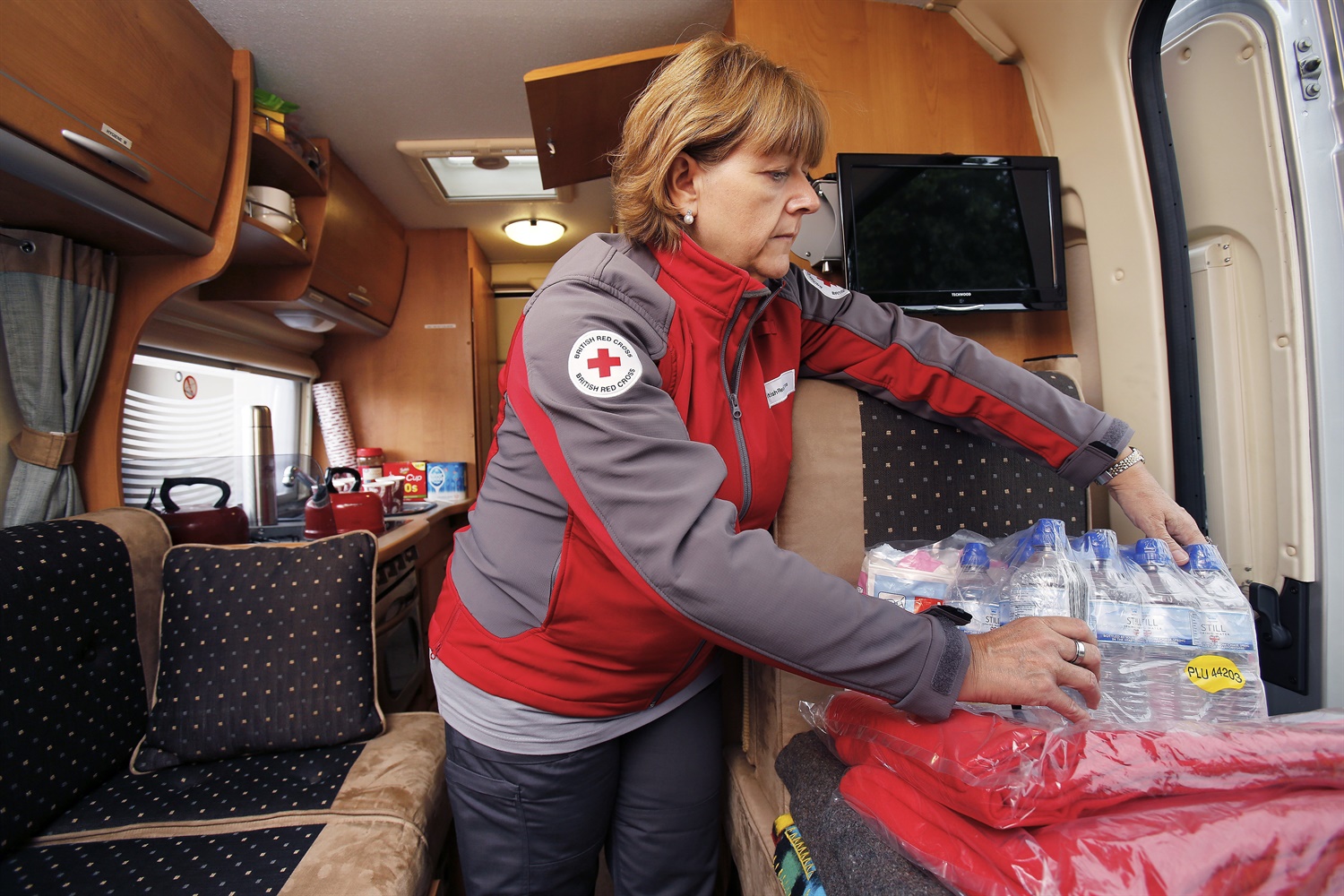13.10.15
'When people run from burning homes, I’m waiting to help them'
Source: PSE Oct/Nov 2015
The new, free British Red Cross emergency app is set to help people across the UK prepare for and deal with a huge range of crises. It features live updates about developing emergencies, and great features such as a personal alarm and strobe light. Just how devastating can these crises be? And what makes someone spend their time helping strangers caught up in them? Jayne Ross describes her high-octane life as a British Red Cross volunteer.
Imagine for a moment your home caught fire. Imagine the fear of running for your life from a burning building. Imagine the realisation that all your most treasured things are still in there. Then imagine standing out on a cold, wet street at three in the morning in just your night-clothes.
Horrific as it sounds, this actually happens to hundreds of people each year. And that, in a nutshell, is why I’m a Red Cross fire and emergency support (FES) volunteer.
Dependable friend
People are rarely at a lower ebb than when they’ve just gone through the trauma of a fire and lost all their possessions. I like being the person they can count on. When there’s a domestic blaze – or any other kind of crisis where we might be able to help – the fire service gets in touch and we head straight for the emergency scene.
We work in teams of two, and drive a specially adapted vehicle – basically, a customised camper van. It has a toilet, shower, spare clothes, blankets, and plenty of food and drink. We even have children’s toys and pet stuff, just in case.
One recent call-out was fairly typical of the kind of work we do. Thankfully, the family had all made it out of the house, but the mother – who is diabetic – was feeling a bit overwhelmed.
Practical help
Our big message when we arrive is: relax, someone’s here to take care of things. We immediately took the mother to our nice, warm vehicle, where we made her a drink and talked through the situation.
Providing emotional support is a big part of our role, and something we’re trained for. People often find it hard to process everything following such a big trauma, so having someone to listen and offer reassurance is really important. Just talking things through can help a lot.
But make no mistake: we deal with all the practical stuff, too. At the last call-out, for example, there was a lot to do. We helped with the family’s insurance claim, made lots of calls, and gave them fresh clothes.
We got regular updates from the fire-fighters, arranged temporary accommodation, and asked the fire-fighters to retrieve some important medication from their burnt-out home. We even got a glazier round to board up the house.
Grateful families
Basically, we help however we can. At one point last week, I found myself rummaging through the bushes with my hard-hat on looking for a football so the children could entertain themselves. We just do what’s needed.
When the family was finally ready to go to the hotel we’d booked, I gave them some hygiene packs and plenty of sweet snacks. I didn’t want to send them off empty-handed, particularly since the mother was diabetic – I was worried about her blood sugar dropping again.
As they left, the family – like so many others we’ve helped – couldn’t have been more appreciative of our support. It was nice to think our presence had made such a big difference for them.

Exciting challenge
So, why do I do it? My reasons are simple. Firstly, I find that in this role, the more you help people the better you feel. There’s an enormous glow of satisfaction you get from being there for someone who is probably having the worst day of their life.
I also love the challenge of the unknown. And I’ve also found some great friends in my fellow volunteers, probably because responding to crises together is a real bonding experience.
I’m very proud of the work we do, and have enjoyed every minute as a volunteer. I wouldn’t change it for the world.
Tell us what you think – have your say below or email [email protected]